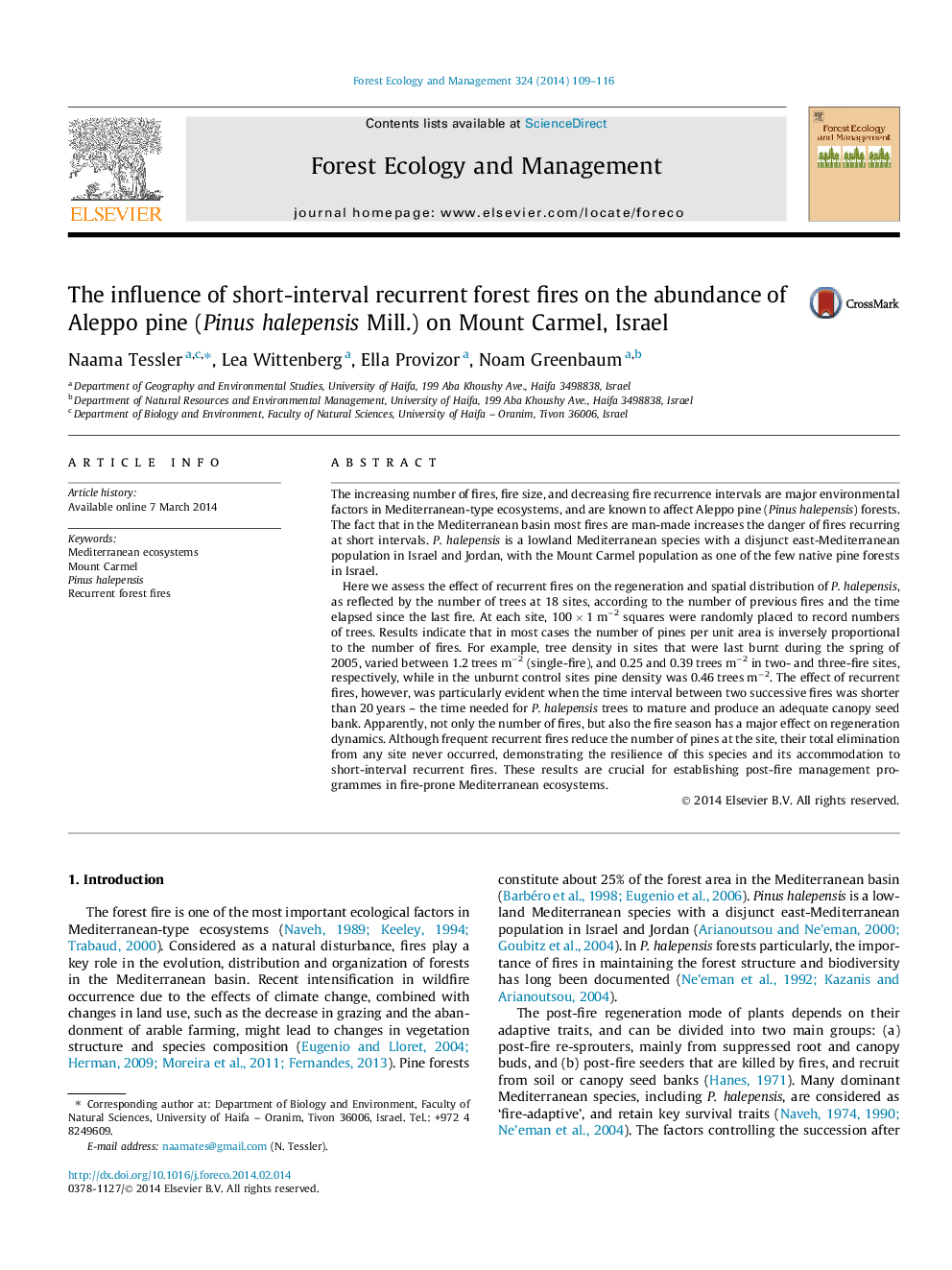| Article ID | Journal | Published Year | Pages | File Type |
|---|---|---|---|---|
| 86630 | Forest Ecology and Management | 2014 | 8 Pages |
•The effects of recurrent fires are particularly evident when the interval between successive fires is shorter than 20 years.•The number of fires and the season of the fires have a major effect on regeneration.•After recurrent fires at short intervals, it is probable that there are more sources for the presence of seeds in the site.
The increasing number of fires, fire size, and decreasing fire recurrence intervals are major environmental factors in Mediterranean-type ecosystems, and are known to affect Aleppo pine (Pinus halepensis) forests. The fact that in the Mediterranean basin most fires are man-made increases the danger of fires recurring at short intervals. P. halepensis is a lowland Mediterranean species with a disjunct east-Mediterranean population in Israel and Jordan, with the Mount Carmel population as one of the few native pine forests in Israel.Here we assess the effect of recurrent fires on the regeneration and spatial distribution of P. halepensis, as reflected by the number of trees at 18 sites, according to the number of previous fires and the time elapsed since the last fire. At each site, 100 × 1 m−2 squares were randomly placed to record numbers of trees. Results indicate that in most cases the number of pines per unit area is inversely proportional to the number of fires. For example, tree density in sites that were last burnt during the spring of 2005, varied between 1.2 trees m−2 (single-fire), and 0.25 and 0.39 trees m−2 in two- and three-fire sites, respectively, while in the unburnt control sites pine density was 0.46 trees m−2. The effect of recurrent fires, however, was particularly evident when the time interval between two successive fires was shorter than 20 years – the time needed for P. halepensis trees to mature and produce an adequate canopy seed bank. Apparently, not only the number of fires, but also the fire season has a major effect on regeneration dynamics. Although frequent recurrent fires reduce the number of pines at the site, their total elimination from any site never occurred, demonstrating the resilience of this species and its accommodation to short-interval recurrent fires. These results are crucial for establishing post-fire management programmes in fire-prone Mediterranean ecosystems.
Graphical abstractFigure optionsDownload full-size imageDownload as PowerPoint slide
